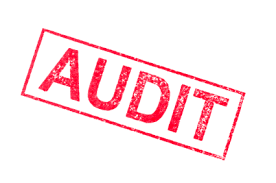The Vital Role of Audit Committees in Corporate Governance
Introduction
In the intricate landscape of corporate governance, the role of audit committee stands out as pivotal. These committees play a critical role in ensuring the integrity and transparency of financial reporting within modern corporations. By acting as a buffer between management and auditors, audit committees uphold the independence and credibility of the audit process. This article delves into the formation, powers, responsibilities, and mandatory reviews conducted by audit committee, shedding light on their indispensable contribution to effective corporate governance.
Audit Committee: Definition, Function, and Significance
An audit committee is a crucial component of corporate governance structures, tasked with overseeing the financial reporting process, internal controls, and external audits within an organization. Comprised of independent directors with financial expertise, audit committee play a vital role in upholding transparency, integrity, and accountability in financial matters. Let’s delve deeper into the definition, how they’re used, and their purpose.
Definition: An audit committee is a subcommittee of a company’s board of directors responsible for overseeing financial reporting, ensuring compliance with regulatory requirements, and maintaining the effectiveness of internal control systems. It acts as an intermediary between management and external auditors, providing independent oversight to safeguard the interests of shareholders and stakeholders.
How They’re Used: Audit committees are typically formed in accordance with regulatory mandates or best practices guidelines. Their composition often includes a majority of independent directors who possess relevant financial expertise. These committees convene regularly to review financial statements, assess internal control processes, evaluate the performance of external auditors, and address any concerns related to financial reporting or compliance.
In practice, audit committees play a proactive role in risk management by identifying potential financial risks and implementing measures to mitigate them. They also facilitate communication between management, internal auditors, external auditors, and regulatory bodies, ensuring transparency and accountability in financial matters.
Purpose: The primary purpose of an audit committee is to enhance the integrity and reliability of financial reporting within an organization. By providing independent oversight, audit committees help mitigate the risk of financial misstatements, errors, or fraud. They ensure that financial statements accurately reflect the company’s financial position and performance, thereby fostering investor confidence and trust.
Moreover, audit committees play a crucial role in promoting good corporate governance practices. By upholding transparency, accountability, and ethical conduct, they contribute to the long-term sustainability and success of the organization. Additionally, audit committees serve as a mechanism for enhancing communication and collaboration between various stakeholders, including shareholders, management, auditors, and regulatory authorities.
In summary, audit committees serve as a cornerstone of effective corporate governance, ensuring the integrity of financial reporting, mitigating risks, and upholding transparency and accountability. Their independent oversight and proactive approach contribute to the overall trust and confidence in the organization’s financial affairs.
Formation of Audit Committees
In jurisdictions like India, the formation of audit committees is mandated for listed companies under legislative frameworks such as the Companies Bill and the SEBI Act. These regulations stipulate specific criteria for the composition of audit committees:
- Minimum Members: An audit committee must comprise a minimum of three directors.
- Independence Requirement: Two-thirds of the committee’s members must be independent directors.
- Financial Expertise: Every member of the audit committee must possess financial knowledge, with at least one member having expertise in financial management, audit, or accounting.
- Independent Chairmanship: An independent director must serve as the Chairman of the audit committee.
- Attendance Obligations: The Chairman must attend all Annual General Meetings to address shareholder queries.
- Inclusion of Executives: The committee may invite relevant executives, such as the finance director and head of internal audit, to its meetings.
- Secretary Role: The Company Secretary assumes the role of the audit committee’s secretary, facilitating administrative functions.
Powers of Audit Committees
Audit committees are endowed with significant powers under Clause 49 (II)(C) of the Listing Agreement, including:
- Investigative Authority: The committee can investigate activities falling under its terms of reference.
- Information Seeking: It has the authority to seek information from any employee.
- Expert Consultation: The committee may obtain external professional or legal advice.
- Attendance of Experts: It can secure the attendance of outsiders possessing relevant expertise.
These powers empower audit committees to conduct thorough assessments and investigations, ensuring robust oversight of financial processes and disclosures.
Roles of Audit Committees
Under Clause 49 (II)(D) of the Listing Agreement, audit committees are tasked with multifaceted roles:
- Financial Reporting Oversight: Continuous monitoring of financial reporting processes to ensure accuracy, sufficiency, and credibility of financial statements.
- External Auditor Oversight: Recommending the appointment and removal of external auditors, fixing audit fees, and approving other services.
- Review of Financial Statements: Scrutinizing annual financial statements, focusing on accounting policies, significant entries, audit qualifications, and compliance.
- Internal Control Review: Assessing the adequacy of internal control systems and the internal audit function.
- Risk Management: Reviewing financial and risk management policies to mitigate potential threats.
- Disclosure Compliance: Ensuring compliance with legal and stock exchange requirements regarding financial statements and related party transactions.
- Additional Functions: Carrying out any other functions specified in the audit committee’s terms of reference.
Mandatory Reviews by Audit Committees
Audit committees are obligated to review specific information under Clause 49 II (E) of the Listing Agreement, including:
- Management Discussion and Analysis: Evaluating the financial condition and operational results provided by management.
- Related Party Transactions: Reviewing transactions involving related parties as defined by the committee.
- Internal Control Weaknesses: Assessing reports on internal control weaknesses issued by statutory auditors and internal auditors.
- Chief Internal Auditor’s Appointment and Remuneration: Reviewing the appointment, removal, and terms of remuneration of the Chief Internal Auditor.
These reviews ensure thorough oversight and compliance with regulatory standards, contributing to the credibility of financial reporting.
Meeting Requirements – Audit Committees
Audit committees are mandated to convene a minimum of three meetings annually under Clause 49 (II)(B) of the Listing Agreement. These meetings should occur at intervals not exceeding four months, with flexibility for additional meetings upon request by external auditors. Attendance at these meetings typically includes the Finance Director, Head of Internal Audit, and representatives of external auditors, with the option for other board members to attend. Notably, the committee should meet separately with external auditors at least once a year, fostering open communication and independent evaluation.
Additional Considerations – Audit Committees
- Training and Education: Ensuring committee members receive adequate training and education to fulfill their roles effectively.
- Conflicts of Interest: Addressing and managing potential conflicts of interest among committee members to maintain objectivity.
- Emerging Trends: Adapting to and staying informed about emerging trends and best practices in corporate governance and auditing.
- Communication with Stakeholders: Establishing effective communication channels with stakeholders to enhance transparency and accountability.
Audit Committee Hazards: Understanding Risks and Mitigation Strategies
While audit committees play a critical role in corporate governance, they are not immune to certain hazards or risks. These hazards can potentially undermine the effectiveness of the committee and compromise its ability to fulfill its responsibilities. Understanding these risks is essential for audit committees to proactively implement mitigation strategies. Let’s explore some common audit committee hazards and corresponding mitigation approaches.
Independence and Conflicts of Interest
One of the primary hazards facing audit committees is the risk of compromised independence or conflicts of interest among committee members. This can arise if committee members have personal or financial ties to the company, its executives, or external auditors, leading to bias or undue influence in decision-making.
Mitigation Strategy:
- Implement stringent independence requirements for committee members, including restrictions on financial relationships with the company or its affiliates.
- Conduct regular assessments of potential conflicts of interest among committee members and take appropriate measures to mitigate them.
- Rotate committee members periodically to prevent long-term entrenchment and promote fresh perspectives.
Lack of Expertise and Experience
Another hazard is the absence of sufficient financial expertise or experience among audit committee members. Inadequate knowledge of accounting principles, financial reporting requirements, or industry-specific regulations can impair the committee’s ability to effectively evaluate financial statements and assess audit findings.
Mitigation Strategy:
- Ensure that audit committee members possess the necessary financial literacy and expertise through appropriate qualifications or training programs.
- Consider recruiting members with diverse backgrounds and experiences, including individuals with accounting, finance, or audit-related qualifications.
- Engage external advisors or consultants with specialized expertise to provide guidance and support to the committee as needed.
Overreliance on External Auditors
Audit committees may face the hazard of becoming overly reliant on external auditors for assurance and validation of financial information. This reliance can potentially compromise the committee’s independence and objectivity, leading to a lack of thorough scrutiny and oversight.
Mitigation Strategy:
- Foster a culture of skepticism and critical inquiry within the audit committee, encouraging members to challenge assumptions and ask probing questions.
- Establish clear communication channels with external auditors, but maintain a healthy level of skepticism and independence in interactions.
- Seek input from internal auditors and other relevant stakeholders to complement the external audit process and provide additional assurance.
Inadequate Oversight of Risk Management
Failure to adequately oversee risk management processes represents another significant hazard for audit committees. In today’s complex business environment, emerging risks such as cybersecurity threats, regulatory changes, and geopolitical uncertainties require vigilant oversight to mitigate potential adverse impacts on the organization.
Mitigation Strategy:
- Develop a comprehensive understanding of the organization’s risk profile and regularly assess key risks affecting financial reporting and internal controls.
- Enhance collaboration with the risk management function and other relevant stakeholders to ensure alignment of risk management efforts with strategic objectives.
- Incorporate risk considerations into the audit planning process and prioritize areas of heightened risk for focused attention and scrutiny.
Compliance and Regulatory Risks
Audit committees may be exposed to hazards related to non-compliance with legal and regulatory requirements, including financial reporting standards, corporate governance guidelines, and disclosure obligations. Failure to adhere to these requirements can result in legal liabilities, reputational damage, and loss of investor trust.
Mitigation Strategy:
- Stay abreast of changes in regulatory requirements and industry best practices through ongoing education and training initiatives.
- Conduct regular reviews of the company’s compliance programs and internal control framework to identify gaps and areas for improvement.
- Foster a culture of ethical conduct and accountability throughout the organization, with the audit committee leading by example in promoting integrity and transparency.
Conclusion
In conclusion, audit committees serve as guardians of transparency and integrity within corporate governance structures. Through their composition, powers, responsibilities, and mandatory reviews, these committees ensure adherence to regulatory standards, mitigate risks, and safeguard stakeholders’ interests. By upholding the independence of the audit process and conducting rigorous oversight, audit committees play an indispensable role in promoting trust and confidence in financial reporting within modern corporations.
Faqs
Q: What is the primary role of audit committees in corporate governance? Audit committees play a critical role in ensuring the integrity and transparency of financial reporting within modern corporations.
Q: Are audit committees mandatory for listed companies? Yes, in many jurisdictions, including India, audit committees are mandated for listed companies under legislative frameworks such as the Companies Bill and the SEBI Act.
Q: What are the key composition requirements for audit committees? Composition requirements include a minimum number of members, a majority of independent directors, and financial expertise among members.
Q: What powers do audit committees possess? Audit committees have powers such as investigative authority, the ability to seek information, and the authority to secure the attendance of experts.
Q: What roles do audit committees play in financial reporting oversight? Audit committees oversee financial reporting processes to ensure accuracy, sufficiency, and credibility of financial statements.
Q: How do audit committees contribute to risk management? Audit committees review financial and risk management policies to mitigate potential threats and ensure compliance with legal and stock exchange requirements.
Q: What mandatory reviews are conducted by audit committees? Mandatory reviews include evaluating management discussion and analysis, related party transactions, and internal control weaknesses.
Q: What are the meeting requirements for audit committees? Audit committees are required to convene a minimum of three meetings annually, with specific attendance requirements, including separate meetings with external auditors.
Q: What additional considerations should audit committees address? Additional considerations include training and education for committee members, managing conflicts of interest, staying informed about emerging trends, and effective communication with stakeholders.
Q: What is the overall contribution of audit committees to corporate governance? Audit committees play an indispensable role in promoting trust and confidence in financial reporting within modern corporations by upholding the independence of the audit process and conducting rigorous oversight.
Author Note:
By Noor Siddiqui, Founder of etaxdial.com
Noor Siddiqui is the founder of etaxdial.com, a leading platform providing comprehensive resources and assistance in taxation and corporate governance. With a deep understanding of financial regulations and corporate practices, Noor Siddiqui aims to empower businesses with the knowledge and tools necessary to navigate complex governance frameworks effectively. Through etaxdial.com, Noor Siddiqui continues to advocate for transparency, integrity, and compliance in corporate governance practices, contributing to the enhancement of trust and confidence in the business ecosystem.




